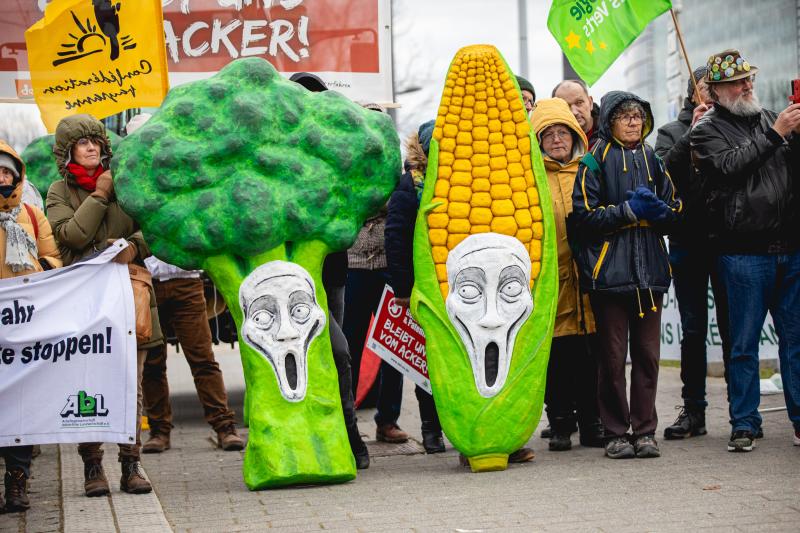Stay always informed
Interested in our articles? Get the latest information and analysis straight to your email. Sign up for our newsletter.

The EP voted in favour of a draft law that would scrap all safety assessments for most new GMOs. This would mean a degradation of environmental and health standards in the EU, as a handout to corporations like Bayer and Syngenta.
The EP voted in favour of a draft law that would scrap all safety assessments for most new GMOs. This would mean a degradation of environmental and health standards in the EU, as a handout to corporations like Bayer and Syngenta.
As proposed by rapporteur Polfjärd, Annex I, deciding what gets deregulated, had no scientific logic. The Parliament, however, failed to improve this.
MEPs also failed to ensure that organic and GM-free farmers will not bear the costs of NGT deregulation if this proposal goes ahead.
If the law goes ahead in this form, the EU would even be non-compliant with the UN Biosafety Protocol.
All of this means a real setback for a better food system as aimed for by the Farm to Fork Strategy.
Yet, Bayer & its lobby groups may not be entirely happy with today's outcome. According to the vote, new GMOs would still be subject to mandatory consumer labelling.
Notably, MEPs also voted for a document-based system for traceability. A safeguard clause was voted in that would allow an NGT to be withdrawn if safety issues appear after introduction.
MEPs agreed that the infamous herbicide-tolerant plants should not be allowed in the deregulated Category 1. However, new crops that produce their pesticide and can be harmful can still get deregulated.
Nina Holland, researcher at Corporate Europe Observatory, says:
"Most MEPs have voted to scrap any safety measures on new GMOs, which is a real setback for a better food system. This would only serve the interests of corporations like Bayer and Syngenta, who have pushed for this for many years. These corporations aim to squeeze out farmers further with expensive patented seeds.
The few silver linings are that the EP voted in favour of mandatory consumer labelling of NGT products, a basic form of traceability and a safeguard clause for when safety issues arise. Labelling and traceability are key demands by GM-free farmers, consumers and environmental groups.”
The EP voted for an amendment about limiting patents on NGTs, but it is still legally shaky. This is because an amendment of the European Patent Convention, which is not an EU treaty, would be required.
The report, as amended, was finally approved with 307 MEPs in favour and 263 against, indicating perhaps a growing level of concern. And indeed, this is not the end of it. EU countries still have no agreement on the text, with many having serious concerns about the implications of patented GM seeds for farmers, for instance.
For more information, contact:
Nina Holland, Corporate Europe Observatory researcher and campaigner:
+32 466 294420
Notes to editor: